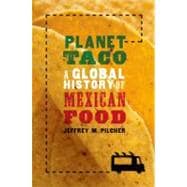
Note: Supplemental materials are not guaranteed with Rental or Used book purchases.
Purchase Benefits
What is included with this book?
| Acknowledgments | p. ix |
| Preface | p. xiii |
| Introduction. A Tale of Two Tacos | p. 1 |
| Proto-Tacos | |
| Maize and the Making of Mexico | p. 21 |
| Burritos in the Borderlands | p. 46 |
| National Tacos | |
| From the Pastry War to Parisian Mole | p. 79 |
| The Rise and Fall of the Chili Queens | p. 105 |
| , Inventing the Mexican American Taco | p. 130 |
| Global Tacos | |
| The First Wave of Global Mexican | p. 163 |
| The Blue Corn Bonanza | p. 189 |
| Conclusion. The Battle of the Taco Trucks | p. 221 |
| Notes | p. 233 |
| Glossary | p. 263 |
| Select Bibliography | p. 268 |
| Index | p. 283 |
| Table of Contents provided by Ingram. All Rights Reserved. |
The New copy of this book will include any supplemental materials advertised. Please check the title of the book to determine if it should include any access cards, study guides, lab manuals, CDs, etc.
The Used, Rental and eBook copies of this book are not guaranteed to include any supplemental materials. Typically, only the book itself is included. This is true even if the title states it includes any access cards, study guides, lab manuals, CDs, etc.